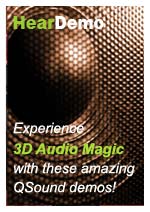Spotlight Feature
Sun Open Sources Java Platform and Releases Source Code under GPL License via NetBeans and Java.net Communities
Sun Microsystems, the creator and leading advocate of Java technology, recently announced it is releasing a buildable implementation of its Java™ Platform Micro Edition (JavaME) under General Public License version two. (GPLv2). This represents one of the largest source code contributions under GPL and the open sourcing of one of the industry’s most significant and comprehensive software platforms.
Java Platform, Micro Edition (JavaME) is the most universal application platform for mobile devices across the globe. With more than 3.8 billion Java technology enabled devices, Java technology is showing explosive growth. From mobile phones and smart cards to enterprise applications and supercomputers Java technology provides a unifying platform for software innovations. By open sourcing Java software, while offering commercial products with indemnity for its customers, Sun expects Java to become even more pervasive.
“Sun Microsystems is making the right move by open sourcing JavaME as this will create an open standards environment for content developers and provide an easily integrable platform for technology vendors” said David Gallagher, President and CEO, QSound Labs, Inc.. “We believe this initiative will accelerate the adoption of our fully compliant solutions for JSR135* and JSR234* and enable robust applications using these technologies.”
QSound’s microQ feature set is a compact, hardware-independent and highly efficient software audio engine providing functions such as polyphonic ringtones, video game sounds, music playback, digital effects and recording for portable applications including Internet appliances, and hand-held and mobile devices. A low-cost and flexible option for consumer electronics and mobile device manufacturers, microQ is inherently modular, scalable and portable. Its core components include a digital audio playback engine, wavetable synthesis engine with a scalable sample set, and a multi-channel stereo mixer. Additionally, microQ offers a wide range of processes to control frequency response, dynamics and spatial enhancements, as well as full 3D positional audio.
*QSound’s microQ® technology supports the JSR135 and JSR234 API

